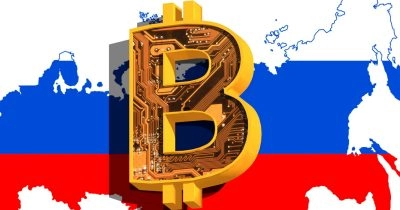
Proposal highlights Bitcoin as a hedge against sanctions and volatility, paving the way for alternative reserves in global trade.

Photo: Bitcoinist
Key Takeaways
- A Russian lawmaker has proposed the creation of a national Bitcoin reserve to counteract sanctions and geopolitical risks.
- The proposal could influence other sanctioned countries to consider cryptocurrencies as tools for maintaining financial stability.
A Russian lawmaker has proposed creating a national Bitcoin reserve to hedge against geopolitical risks and sanctions, according to a RIA Novosti report.
Anton Tkachev, a State Duma member from the Novye Lyudi party, submitted a formal appeal to Finance Minister Anton Siluanov, suggesting the establishment of a Bitcoin reserve similar to traditional state reserves in fiat currencies.
“With limited access to traditional international payment systems for countries under sanctions, cryptocurrencies are becoming virtually the only tool for international trade,” Tkachev wrote in his appeal.
The proposal comes as Russia faces restricted access to global financial systems due to sanctions.
Tkachev emphasized that conventional foreign exchange reserves are vulnerable to sanctions, inflation, and volatility, which could threaten Russia’s financial stability.
He noted that modern challenges necessitate the introduction of new payment processing systems and alternative reserve storage tools, referring to crypto assets such as Bitcoin, which are independent of individual countries.
The lawmaker highlighted Bitcoin’s price of $100,000 in December 2024, emphasizing its potential as both a store of value and an investment asset.
At the time of writing, Bitcoin was trading at $96,500, below its recent peak of over $103,000.
The initiative aligns with the Central Bank of Russia’s efforts to incorporate digital assets into cross-border payments, Tkachev added, emphasizing the growing importance of crypto assets as viable tools for international trade.
The implementation would require substantial policy changes and coordination between government agencies, including the Central Bank and financial regulators.
If enacted, the measure could influence other sanctioned nations considering crypto assets as a means of maintaining financial stability.
Disclaimer 




